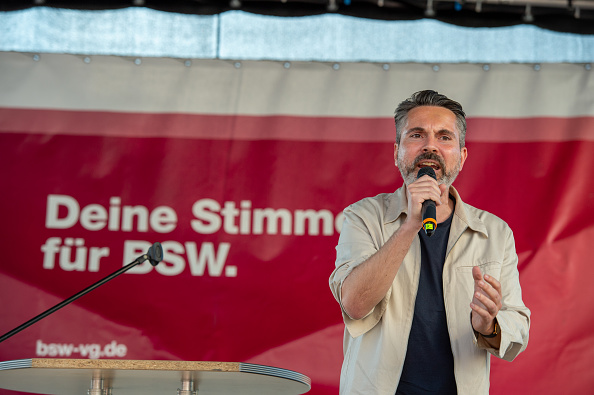Nine out of ten Jews in the European Union have experienced anti-Semitism and most worry for their own safety, according to a new study.
Some Jewish organisations witnessed a 400 per cent increase in anti-Semitic incidents since the October 2023 attack by Hamas terrorists on Israel, said the European Union Agency for Fundamental Rights (EUAFR), which released the survey on July 11.
The study discovered 53 per cent of Jews living in the EU were concerned about personal safety, while 60 per cent feared for the welfare of their family.
In addition, 76 per cent of European Jews have hidden their identity at least occasionally, the survey found.
“Today, most Jewish parents instruct their children to hide their identity in public out of fear of being violently attacked or harassed,” Ariella Woitchik, director of European affairs for the European Jewish Congress, told Brussels Signal.
Many Jews “change their names to order an Uber or deliveries at home”, she said.
While some EU countries such as Austria, Germany and Romania had adopted national strategies for combating anti-Semitism, “others are still far behind, like Belgium, Ireland, and Malta”, added Woitchik.
In France, surveys showed 50,000 of the nation’s Jews were contemplating moving to Israel, Nicole Lampert, a board member of The Jewish News and journalist who writes regularly about anti-Semitism, told Brussels Signal.
That, she said, revealed “they felt safer moving to an actual war zone”.
Attacks on Jews quadrupled in France after October 2023, said the Council of Jewish Institutions in France (CRIF) in January this year.
These included the “recent gang rape of a 12-year old girl in France and the beating of an 88-year old woman in Northern Paris”, Woitchik said.
Michael Roth, chair of the Bundestag’s foreign affairs committee, added: “Jews are no longer safe in Germany and the EU.”

The number of anti-Semitic incidents in Berlin increased by 50 per cent in 2023, with the capital now seeing an average of 10 incidents a day since October, the German Government’s Association for Research and Information on Antisemitism (RIAS) said in May.
The EUAFR study also found 80 per cent of European Jews felt anti-Semitism in their country had become more prevalent over the past five years.
Of the EU’s Jews, 56 per cent had encountered anti-Semitism offline in the last year from people they knew, while 90 per cent of European Jews had experienced such online.
Europol, the EU law enforcement co-operation agency, held an “action day” on June 27 during which it flagged “close to 2,000 pieces of content” for removal.
Lampert said social media encouraged anti-Semitic posters “because they get paid for more engagement, so they become ever more extreme”.
“I am most active on X and every day get dozens of accounts abusing me simply because I speak up for Jews,” she said.
Woitchik said online racism against Jews fuelled violent physical attacks on them.
Jewish communities “expect more funding for their security, better enforcement of hate crimes laws and full implementation of the EU Strategy on combating antisemitism and fostering Jewish life”, she said.
Lampert said the EUAFR study results “will come as no surprise to European Jews: anti-Semitism has been rising for the last decade and since October 7 it has reached a new peak”.
“How much worse is it going to get? There are many discussions about safety and which country is safe. The answer: none,” she said.
Properly tackling anti-Semitism online “has to be one of the easier ways”, she added, although “first European countries have to agree on what anti-Semitism is”.
While 32 European countries have adopted the International Holocaust Remembrance Alliance’s (IHRA) definition of anti-Semitism as “hatred of Jews”, Ireland, Norway, and Iceland, for example, have not.
The European Commission has argued the IHRA definition is not “meant to be used in court proceedings” or in treaties because of its “lack of precision”.
Effectively dealing the issue also meant “hate preachers in mosques have to be tackled, as do those spreading lies on university campuses,” Lampert said.
Finally, the Holocaust needed to be taught “not just as a lesson from the past but as a warning of what will happen if we Europeans once again allow anti-Semitism to rise”, Lampert concluded.





